Culture in Sweden
Cultural experiences in Scandinavia
The culture in Sweden is a fascinating weave of historical traditions and modern influences that are reflected in its diverse cuisine, festive customs and everyday life.
Known for its simplicity and focus on high-quality, seasonal ingredients, Swedish cuisine offers a culinary experience that ranges from Köttbullar and Kanelbullar to innovative, world-renowned restaurants. Swedish festivals and customs, such as the life-affirming Midsummer Festival, the atmospheric Lucia Festival and the cosy Christmas season, reflect the Swedes' love of nature, family and community.
These cultural expressions give Sweden its unique character and foster a deep sense of belonging and national pride.
Swedish cuisine
Swedish cuisine is characterised by its closeness to nature, emphasis on seasonal and natural ingredients and traditional preservation methods. It combines simplicity with pure flavours and is known for its fish dishes, hearty home cooking and delicious baked goods, while at the same time being open to innovation.
5 typical dishes from Sweden
Sweden offers a wide range of traditional dishes, from savoury meat dishes to sweet pastries.
1. Köttbullar
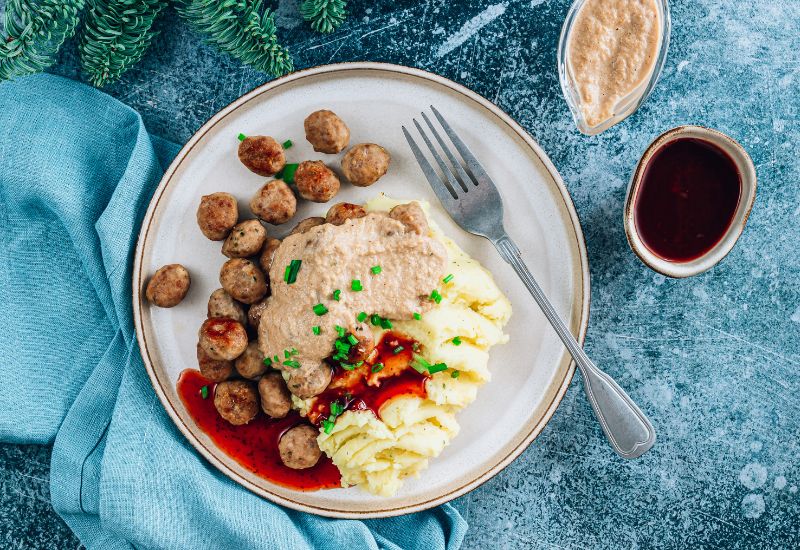
The classic Swedish meatballs Köttbullar are a savoury and popular dish from Sweden that is now enjoyed all over the world. They are traditionally made from a mixture of beef and pork and flavoured with onions, breadcrumbs, egg and spices. Köttbullar are often served with creamy mashed potatoes, brown gravy, lingonberry jam and pickled gherkins.
2. Surströmming and other fish specialities

Surströmming is known and infamous for its intense odour and distinct taste. It is fermented herring that is left to mature in brine for months, resulting in a unique flavour that non-Swedes may find difficult to get used to. Traditionally, surströmming is served on thin slices of bread with potatoes, onions and sour cream to soften the strength of the flavour.
Those who prefer a less intense fish flavour will enjoy pickled herring (sill), which is available in various flavours such as mustard, garlic or dill. Gravad Lax (salmon marinated in dill) also offers fish lovers a typically Swedish flavour experience.
3. Crispbread
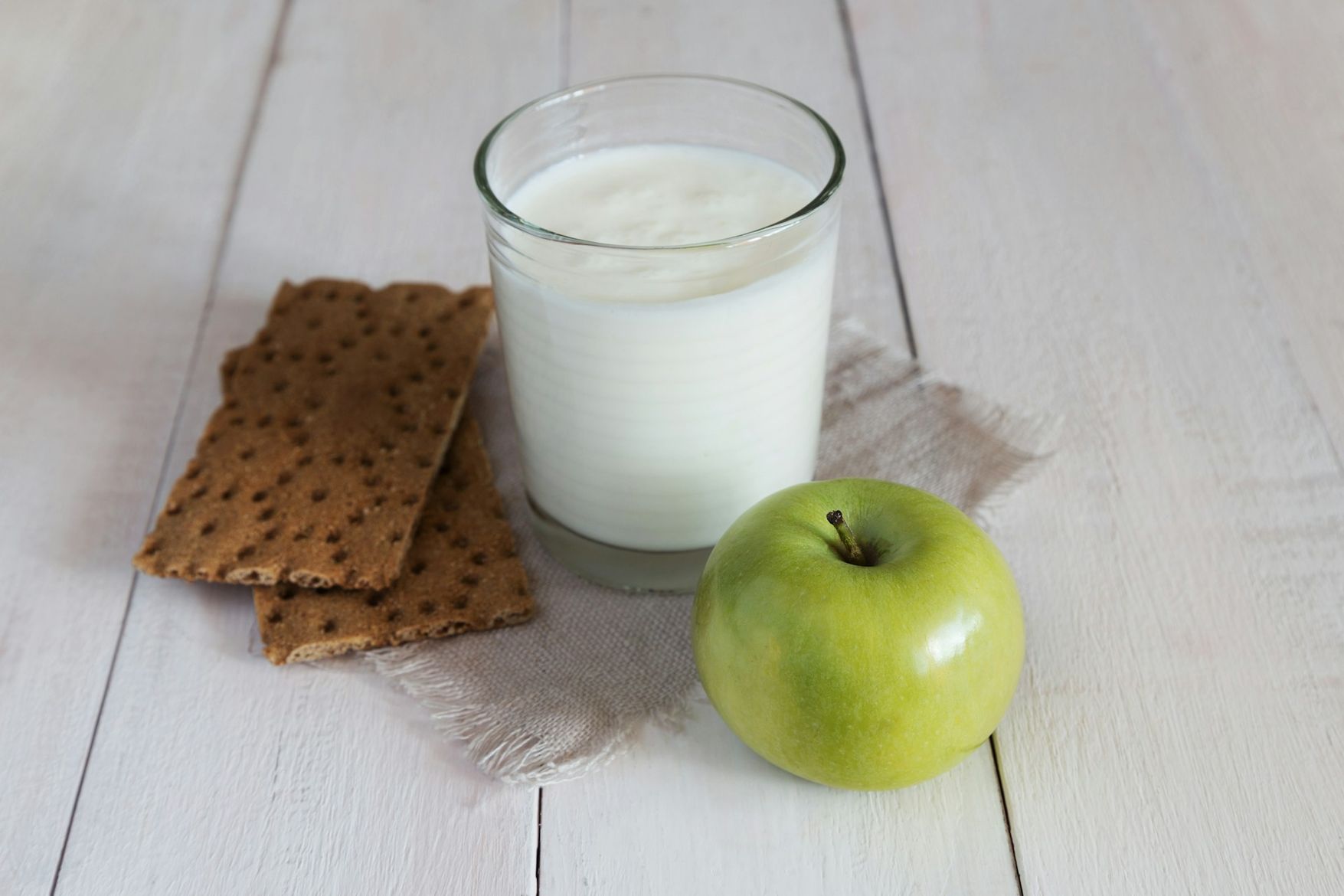
Crispbread is an indispensable part of Swedish food culture. It is characterised by its crispy texture and nutty flavour. Crispbread is made from wholemeal rye flour, water, salt and sometimes yeast
The thin, dry slices of bread are both nutritious and versatile. Crispbread is often enjoyed with meals as a side dish or topped with cheese, sausage or other cold cuts.
4. Kanelbulle
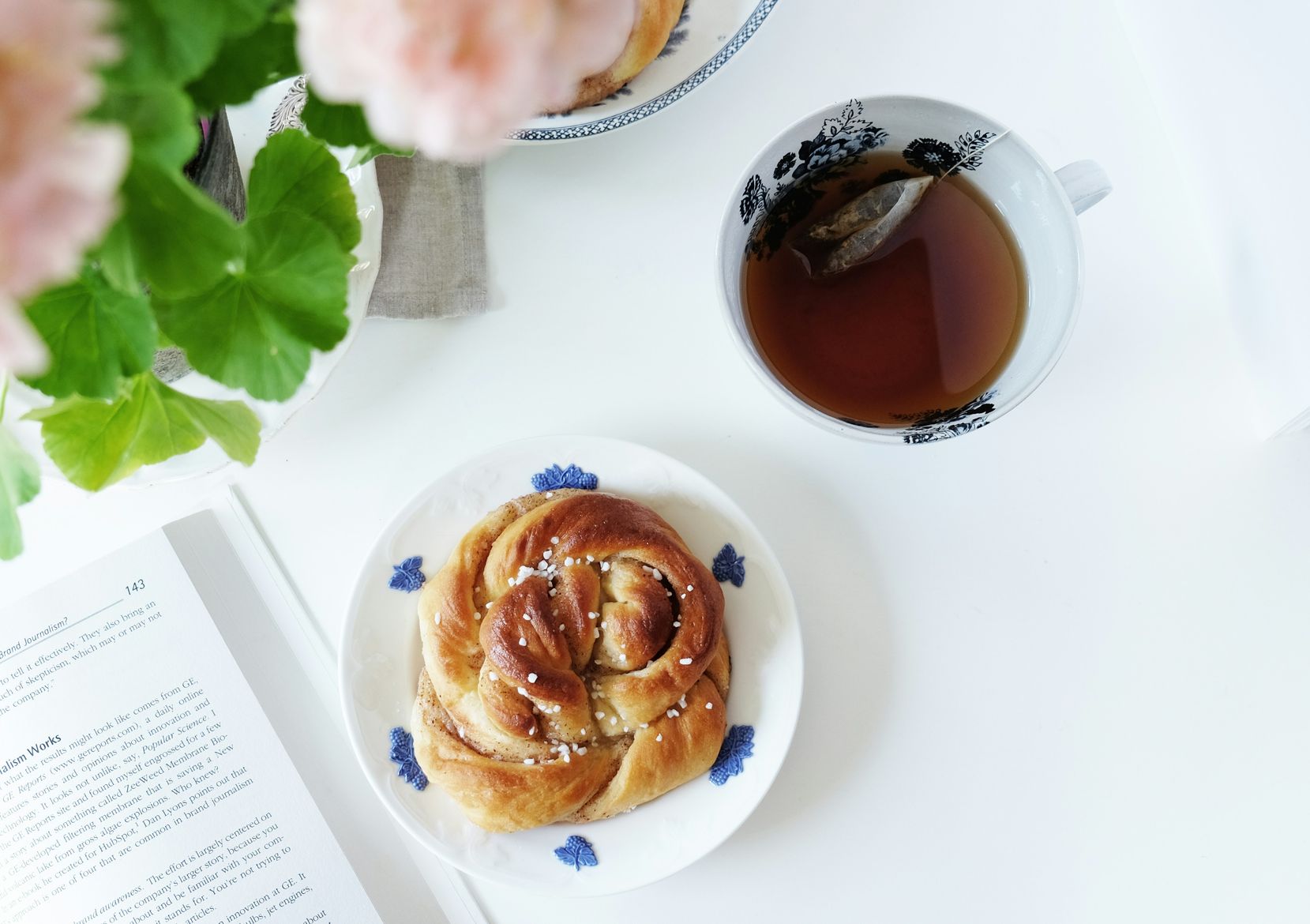
Kanelbulle is a Swedish cinnamon bun. The pastry is deeply rooted in Swedish coffee culture. The sweet, flavoured snails are made from a rich yeast dough with a filling of butter, sugar and cinnamon. Before baking, they are often sprinkled with granulated sugar or almond slivers.
Kanelbullar are popular for their irresistible combination of sweetness and warmth. They are ideal for serving with the traditional Swedish ‘fika’, or coffee break.
5. Janssons frestelse
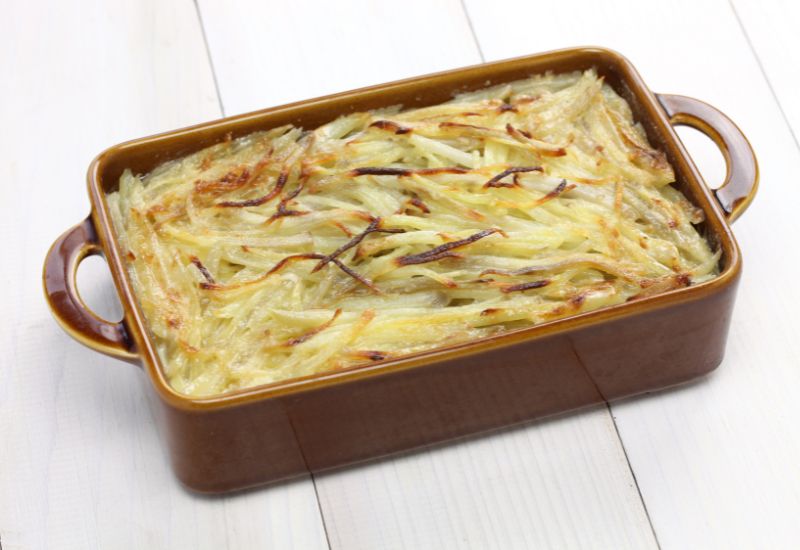
Janssons Frestelse, or Jansson's temptation, is a classic Swedish casserole dish consisting of thin strips of potato, onions, pickled anchovies or anchovies and a rich cream sauce. It is baked in the oven and combines spicy and mild flavours to create an irresistibly delicious whole. This traditional dish is often served on festive occasions, especially during the Christmas season.
Drinks
In Sweden, emphasis is placed on socialising and moderation in alcohol consumption. Alcoholic beverages are closely associated with Swedish traditions and celebrations and there is a strong culture of responsible drinking.
The sale of alcoholic beverages with more than 3.5% alcohol is regulated by the state in Sweden and is sold exclusively through Systembolaget, the state-run alcohol shops. This contributes to the regulation of consumption.
Non-alcoholic drinks are also an important part of the drinking culture. ‘Fika’, the communal coffee break, is an example of how non-alcoholic drinks are central to social interaction.
Fika
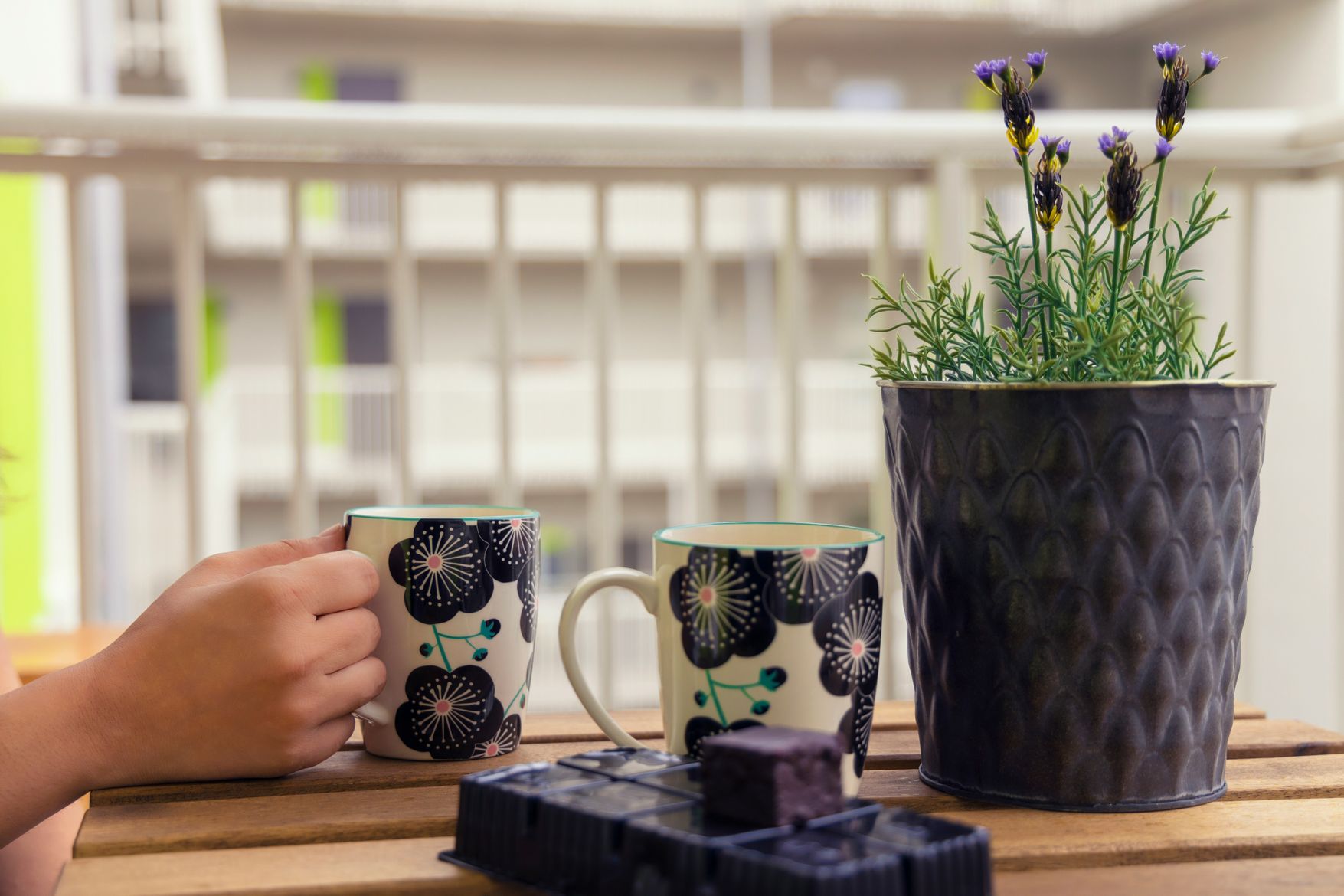
Fika is a deeply rooted tradition in Sweden that goes far beyond a short coffee break. It is a moment of peace and togetherness where people pause over coffee, often accompanied by sweet pastries such as kanelbullar (cinnamon buns) or biscuits.
Fika emphasises the importance of breaks in everyday life and encourages social interaction. It is not least this tradition that has contributed to Sweden being one of the countries with the highest coffee consumption in the world.
Traditional festivals and customs
The festivals in Sweden reflect the course of the seasons. They are deeply rooted in Swedish culture and traditions that promote social life and community.
Midsommar

Midsommar is one of the most important festivals in Sweden, celebrated at the end of June on the summer solstice. People dance around the Majstång, which is decorated with flowers, wear floral wreaths and enjoy traditional foods such as herring and new potatoes.
Lucia Festival

The Lucia Festival is celebrated on 13 December in honour of Saint Lucia to bring light into the darkest time of the year. Girls and boys in white robes, led by a ‘Lucia’ with candles in her hair, sing traditional songs to celebrate the arrival of light.
Christmas (Jul)
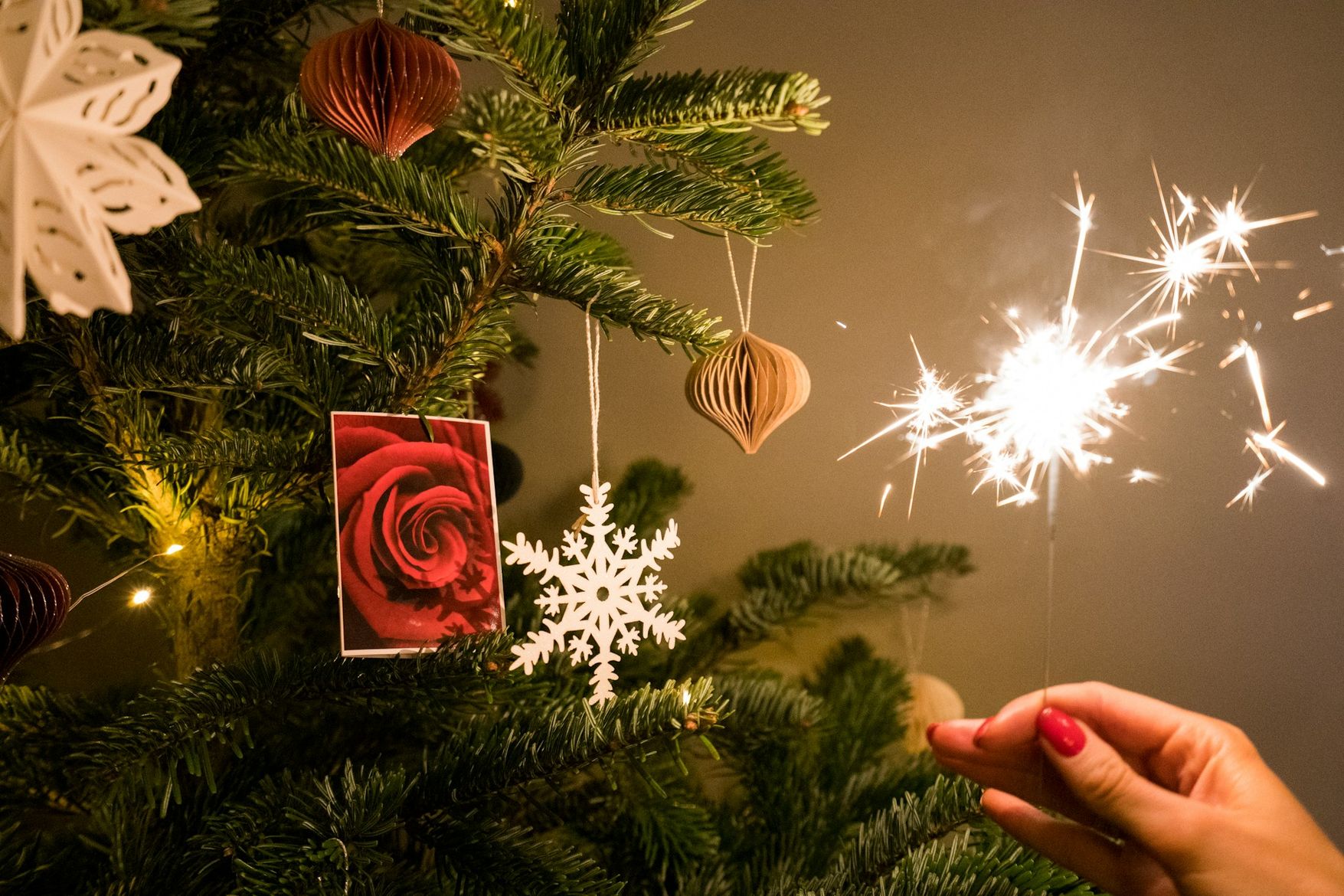
Swedish Christmas is a time of cosiness (‘mys’), with special traditions such as the Julbord, a special Christmas version of the Smörgåsbord. This is a buffet with a selection of hot and cold dishes. Other traditions include decorating a Christmas tree and exchanging presents on Christmas Eve.
Easter (Påsk)

Similar to other countries, Easter is celebrated in Sweden with eggs and special sweets. Children dress up as Easter witches and go from door to door to collect sweets, similar to the American Halloween.
Experience Sweden
Swedish culture is a living mosaic of traditional customs and modern innovation. The cultural aspects foster a deep understanding of the Swedish way of life, an appreciation for traditions and an openness to the future. Sweden's culture invites you to discover the beauty in simplicity and to appreciate the importance of community and closeness to nature.
Are you ready to gain new cultural impressions in Scandinavia?
Here you can find out more about toll regulations in Sweden so that you can travel around the country stress-free.
